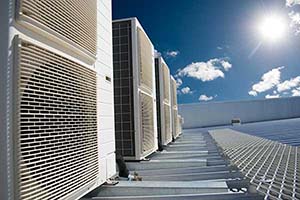Contractors License Overview
- Virtually every aspect of construction is regulated at the State level.
- The Board for Licensing Contractors requires a contractor license for any project exceeding $25,000.00 and must be obtained prior to offering to engage, bid, or contract. This includes Residential, Commercial, Industrial, Environmental, Electrical and Mechanical.
- For additional licensing requirements including experience, financial and bonding requirements, exam information, reference books needed and reciprocity, please select the License link below.
- The NASCLA Accredited Commercial Exam is acceptable by Tennessee for the BC-B classification.
- *WORKERS’ COMPENSATION INSURANCE EXEMPTIONS- EFFECTIVE MARCH 1, 2011*- owners, officers of a corporation, partners or members of an LLC may register with the Tennessee Secretary of State’s office to obtain an exemption from covering themselves from Workers’ Compensation insurance. More information is available from the law or see their website at: Construction Services Provider
- Roofing Subcontractors PC 355: Roofing subcontractors required to be licensed as a contractor. (Eff. 1/1/2014)

Tennessee Residential
Tennessee Licensed Masonry Contractor (LMC)
We offer custom training options for the Tennessee Licensed Masonry Contractor (LMC) training built around your schedule. Find out now what options we have available.
Explore Custom Training TodayA Masonry subcontractor must be licensed with an "LMC" classification to bid or to be listed on the outside of bid envelope as a Licensed Masonry Contractor (LMC) when the masonry portion is $100,000 or more (including materials and labor).
This license was put in effect January 1, 2011.
Tennessee Residential Contractor (BC-A)
This contractor license covers the construction, remodeling, repair, or improvement of 1, 2, 3, or 4 family unit residences not exceeding 3 stories in height and accessory use structures in connection therewith. A license is required for jobs over $25,000.
Tennessee Residential/Small Commercial Contractor (BC-A,b)
A Residential/Small Commercial contractor may construct, remodel, repair, or improve any one, two, three or four family unit residences, and accessory use structures in connection therewith. They may also contract for commercial work that does not exceed $1,500,000.00 per project. This includes any building structure for use by the general public, including residential construction with more than for (4) units or greater than three (3) stories in height.
A license is required for any job over $25,000.
Tennessee Commercial
NASCLA Commercial General Building Contractor
The NASCLA Accredited Commercial General Building Contractor Exam eliminates the trade examination only for the participating state agencies. Once you have passed an exam within the NASCLA Accredited Examination Program, contractors will still have to meet additional state licensure requirements within each participating state to obtain their license, as well as passing the state specific Business Law exam.
Tennessee Commercial and Industrial Contractor (BC-B, C)
This license is authorized to construct, erect, alter, repair or demolish any building or structure for use and occupancy by the general public, including residential construction with more than four units or greater than three stories in height. They are also authorized to erect, alter, repair and demolish buildings or structures used for industrial production and services, such as manufacturing plants. A license is required for jobs over $25,000.
Tennessee Commercial Contractor (BC-B)
A commercial building contractor is authorized to bid on and contract for the construction, erection, alteration, repair or demolition of any building structure for use by the general public, including residential construction with more than four (4) units or greater than three (3) stories in height.
A license is required for jobs over $25,000.
Tennessee Industrial Contractor (BC-C)
This license allows the holder to erect, alter, repair, and demolish buildings or structures used for industrial production and service, such as manufacturing plants. A license is required for jobs over $25,000.
Tennessee Residential, Commercial and lndustrial Building Contractor (BC)
Contractors holding this license may erect, alter, repair or demolish any residential home, commercial building for use by the general public, and buildings or structures used for industrial production and service, such as manufacturing plants. A license is required for jobs over $25,000.
Tennessee Residential/Commercial Contractor (BC-A, B)
This license allows the holder to erect, remodel, repair, alter, or demolish any residential structure regardless of the number of units or number of stories. It also allows the erection, construction, alteration, repair, or demolition of any building or structure for use and occupancy by the general public. A license is required for jobs over $25,000.
Tennessee Small Commercial Contractor (BC-b)
A small commercial contractor is authorized to bid on and contract for the construction, erection, alteration, repair or demolition of any building structure for use by the general public, including residential construction with more than for (4) units or greater than three (3) stories in height where the monetary value of the project is $1,500,000.00 or less.
Tennessee Business and Law
Tennessee Business and Law
All Contractors are required by the state to pass this exam in addition to their trade exam in order to obtain a license. Some smaller, specialty licenses may be obtained by passing only the Business and Law contractor license exam. These smaller licenses do not have an exam of their own. Up to five (5) Specialty Licenses can be held under this license.
Tennessee Electrical
Level 1 Electrical Trainee
We offer custom training options for the Level 1 Electrical Trainee training built around your schedule. Find out now what options we have available.
Explore Custom Training TodayThis 8 day course will be based on NCCER curriculum and will cover orientation to the electrical trade, electrical safety, introduction to electrical circuits, electrical theory, introduction to the NEC, device boxes, and basic electrical construction drawings.
The course is delivered in 2 four-day sessions, over 2 consecutive weeks and attendance for all sessions is required.
Tennessee Electrical Contractor (CE)
This license allows the candidate to pull electrical permits and subcontract components of the project when the electrical portion constitutes at least 60% of the total project cost.
The Electrical Contractor may perform electrical work for buildings and structures, all types of low voltage work, electrical sings, burglar and security systems, fire detection, electrical temperature controls, roadway lighting, attenuators and signalization. This license does not allow high voltage electrical work; a separate license is need for high voltage work.
Tennessee High Voltage Electrical Contractor (CE-A, H)
We offer custom training options for the Tennessee High Voltage Electrical Contractor (CE-A, H) training built around your schedule. Find out now what options we have available.
Explore Custom Training TodayThis license allows high voltage (over 600 volts) electrical work including but not limited to transmission lines and substations.
Tennessee Limited License Electrician (LLE)
This license covers electrical work under $25,000 per job. The LLE is not accepted in counties having a codes office, which performs their own inspections (such as Davidson, Hamilton, Knox, Shelby, etc), licensing, and testing. Please contact your local codes office for their requirements.
Tennessee NASCLA
NASCLA offers a single exam to become licensed in 15 states. For more information click here.
Oregon - Nevada - Arizona - Utah - Louisiana - Florida - Arkansas - Alabama - Mississippi - Georgia - South Carolina - North Carolina - Virginia - Tennessee
NASCLA Commercial General Building Contractor
The NASCLA Accredited Commercial General Building Contractor Exam eliminates the trade examination only for the participating state agencies. Once you have passed an exam within the NASCLA Accredited Examination Program, contractors will still have to meet additional state licensure requirements within each participating state to obtain their license, as well as passing the state specific Business Law exam.
Tennessee HVAC and Mechanical
Tennessee General Mechanical Contractor (CMC)
This is a broad license that covers HVAC, Refrigeration, Gas Piping, Plumbing, Solar HVAC, Process Piping, Sprinklers and Fire Protection, Insulation of HVAC Systems, Pollution Control, Pneumatic Tube Systems, Pneumatic Temperature Control, and Boiler Construction and Repair.***NOTE***: The state of Tennessee recognizes this license to allow the contractor to hook-up to the Electrical Disconnect, however many jurisdictions within the state do not. Check with your City/County Codes Official for complete code requirements.Tennessee HVAC/Refrigeration Contractor (CMC-C)
This license allows the holder to install and perform maintenance on heating, ventilation, air conditioning, refrigeration, gas piping, and geothermal HVAC equipment. The CMC-C license is required for candidates who need to pull permits for projects limited to heating, ventilation, and air conditioning.Tennessee HVAC Training and CEU
608 EPA Universal Certification Course
EPA regulations (40 CFR Part 82, Subpart F) under Section 608 of the Clean Air Act require that technicians who maintain, service, repair, or dispose of equipment that could release ozone depleting refrigerants into the atmosphere must be certified.
Technicians are required to pass an EPA-approved test to earn Section 608 Technician Certification. The tests are specific to the type of equipment the technician seeks to work on. Tests must be administered by an EPA-approved certifying organization. Section 608 Technician Certification credentials do not expire. This is not a formal refrigeration training course. This course includes a full day of lectures, book review and practice. EPA Section 608 Preparatory Manual 9th Edition V2 booklet is required. Participants may schedule to take the exam when ready.
Diagnostics 1- Diagnosing 12 Residential Systems
The objective of this course is using organized methods of troubleshooting. Review of “normal” High Side conditions. Review of “normal” Low Side conditions. Diagnosing system components. Diagnosing 11 common system problems and 1 normal system operation.
Organized troubleshooting, know the system. What is it supposed to be doing? Listen to the customer, their observations are very important. Use all your senses, look, touch, smell, and listen. Be logical and analytical, use “If…then…” thinking. “Network”, get input from other techs, or the manufacturer. In this workshop we will be using a diagnostic chart for each service problem by getting system pressures along with superheat/subcooling.
This 6-hour class counts as Continuing Educational credits for: NATE- 4
Diagnostics 2 - Diagnosing 24 Heat Pump Residential Systems
Diagnosing 24 Heat Pump Residential Systems (troubleshooting calls with “You be the Technician” service calls homework) As the HVAC/R student acquires general knowledge about the components, circuits, and sequence of operations of various systems, a broad mental database is being created.
This pool of information, in effect, becomes a large "toolbox" that can be accessed as needed to help the technician solve various field problems. Just as a technician carries a complete set of hand tools, including wrenches, gauges, screwdrivers, and the like, a mental toolbox is just as important in order to troubleshoot an air-conditioning or heatpump system effectively. The commonsense aspect of troubleshooting helps the technician determine what to do with the available tools. Therefore, the more complete this tool-box is, the more effective the service technician will be.
HVAC Residential Design
NATE Training and Certification
NATE certification for HVAC/R technicians. North American Technician Excellence (NATE) is the nation's largest nonprofit certification organization for heating, ventilation, air conditioning and refrigeration (HVACR) technicians.
NATE tests represent real-world working knowledge of HVACR systems and validate the professional competency of service and installation technicians. Contractors, manufacturers, distributors and educators across the industry partner with NATE to develop knowledgeable, competent HVACR technicians. Home and business owners choose HVACR contractors who employ NATE-certified technicians to get repairs done right the first time.
Tennessee Plumbing
Tennessee Limited License Plumber
A Limited License Plumber means any person who performs any plumbing work and non-medical gas piping work that has a total cost less than $25,000. The following counties DO NOT require a State LLP license to do work under $25,000 (Benton, Decatur, Dickson, Giles, Henderson, Henry, Hickman, Humphreys, Lake, Lawrence, Lewis, Obion, Perry, Stewart, and Weakley). Other local licensing may be required in these counties.
Tennessee Mechanical Plumbing (CMC-A)
This license permits the installation, alteration, remodeling, or repair of any plumbing or non-medical gas piping. A license is needed for jobs where the total cost is in excess of $25,000.
Tennessee Low Voltage and Fire
Tennessee Fire Sprinkler and Fire Protection Contractor
We offer custom training options for the Tennessee Fire Sprinkler and Fire Protection Contractor training built around your schedule. Find out now what options we have available.
Explore Custom Training TodayThis license allows the installation and maintenance of fire sprinkler systems and fire protection equipment.
Tennessee Specialty Trades
Certified Pool & Spa Operator Certification Program
We offer custom training options for the Certified Pool & Spa Operator Certification Program training built around your schedule. Find out now what options we have available.
Explore Custom Training TodayTennessee Contractor Pre-Licensing seminar
We offer custom training options for the Tennessee Contractor Pre-Licensing seminar training built around your schedule. Find out now what options we have available.
Explore Custom Training Today







